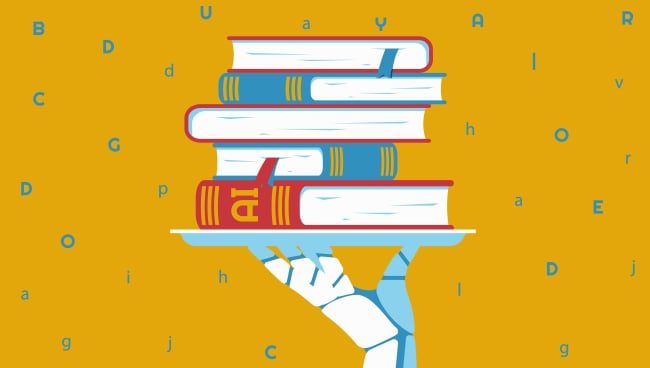TL;DR:
- Northwestern University Libraries responded to the AI wave by creating an informative landing page.
- Librarians play a vital role in navigating AI’s impact on research and citations.
- The University of Texas at Austin initiated a pilot project to train graduate students and librarians in AI and data science.
- AI guidelines within library settings are crucial to address concerns like plagiarism and data security.
- The Association of College and Research Libraries is looking to incorporate AI into its information literacy framework.
- Librarians recognize the educational opportunities AI brings in reshaping research methods.
- Despite challenges, starting to use AI tools is recommended for librarians.
- AI technology has the potential to alleviate some of the burdens on librarians.
- The conversation about AI needs to extend beyond the library’s walls and find its place in classrooms.
Main AI News:
In the wake of ChatGPT’s launch last fall, Northwestern University found itself facing a surge of inquiries from faculty and students alike regarding the burgeoning field of artificial intelligence (AI). These inquiries were not merely passing curiosity; they reflected a pressing need to navigate the realm of AI in research and citations. Michelle Guittar, Head of Instruction and Curriculum Support at Northwestern University Libraries, recognized the gravity of the situation. In response, she collaborated with librarian Jeanette Moss to craft an informative landing page titled “Using AI Tools in Your Research” in April, filling a gap where the university had yet to provide a comprehensive resource.
Librarians have often stood as vanguards in the face of monumental shifts in information technology, from the advent of the fax machine to the ubiquity of the internet and now the ascent of generative artificial intelligence into the academic domain. R. David Lankes, the Virginia and Charles Bowden Professor of Librarianship at the University of Texas at Austin, lauds this transformative impact, noting that librarians have, with each passing decade, honed their adaptability in the face of existential questions regarding their role.
While some librarians were early adopters of AI, others remain cautious about its potential pitfalls, including misinformation and research inequality. The absence of clear guidelines and overarching direction from top library organizations has left many librarians grappling with self-education, adding another layer to their already extensive to-do lists.
Pioneering the Way Forward
In November 2022, the School of Information at UT Austin received funding from the Federal Institute for Museum and Library Services to initiate a pilot project. This project aims to train graduate students in collaboration with librarians on AI and data science. Graduate students venture into high schools to educate students about artificial intelligence and engage in research projects with librarians, often employing tools like ChatGPT to enhance their results. Lankes envisions that these graduate students will, in time, become faculty members who can further educate future library science students.
Despite the absence of established AI rules in many universities, some librarians have recognized the necessity for AI guidelines within library settings. Librarians have always played a vital role in teaching information evaluation, and this role has only grown more crucial in the age of AI, as underscored by Moss, an instruction and curriculum support librarian at Northwestern. However, Ray Pun, an academic and research librarian at Alder Graduate School of Education, initially hesitated to adopt such policies due to concerns about plagiarism, AI-generated inaccuracies, inequities in access to advanced GPT models, and data security breaches.
To address these concerns, Alder implemented a mandated statement in every class syllabus, devised by Pun, faculty members, and a student. This statement obliges students using AI to cite the AI tools in their paper’s reference page and quote or paraphrase the AI-generated responses. Currently, there are no universal AI guidelines from any governing library body, but Leo Lo, president-elect at the Association of College and Research Libraries, sees AI integration as a priority in the organization’s framework for information literacy in higher education.
Opportunities Amidst Challenges
Despite these challenges, librarians also recognize the educational opportunities AI brings. It reshapes how students conduct research, providing librarians with valuable moments to instruct students on information verification and evaluation. Moss from Northwestern University sees this as a time for librarians to shine, leveraging their expertise in information organization and critique.
For librarians who may feel overwhelmed by the technology, the consensus among experts interviewed for this article is clear: start using AI tools. Guittar encourages librarians to create accounts and experiment with these tools, emphasizing the importance of not letting fear hold them back. However, this task can be daunting for librarians already dealing with burnout and low morale.
Lankes from UT Austin believes that AI technology has the potential to alleviate some of the burdens on librarians. He suggests that the way forward is not to be more productive but to identify tasks that can be relinquished. Lo echoes this sentiment, emphasizing that librarians cannot afford to miss out on AI’s potential despite the challenges it presents.
The conversation about AI should extend beyond the library’s walls and find its place in classrooms, asserts Lankes. While there is a need to regulate and understand AI, he views this as an exciting time for those willing to embrace it. In this era of AI integration, librarians stand at the forefront of an evolving landscape, poised to adapt and continue their essential role in the academic community.
Conclusion:
The integration of AI in academic libraries presents both challenges and opportunities. Librarians are at the forefront of adapting to this transformative technology. As AI becomes increasingly prevalent in higher education, libraries must navigate ethical concerns and establish clear guidelines. Nevertheless, AI also offers a chance for librarians to enhance their roles in guiding students through the evolving research landscape, positioning libraries as vital hubs for AI education and information literacy. This trend underscores the need for education and resources to empower librarians in harnessing the potential of AI within academic institutions.

